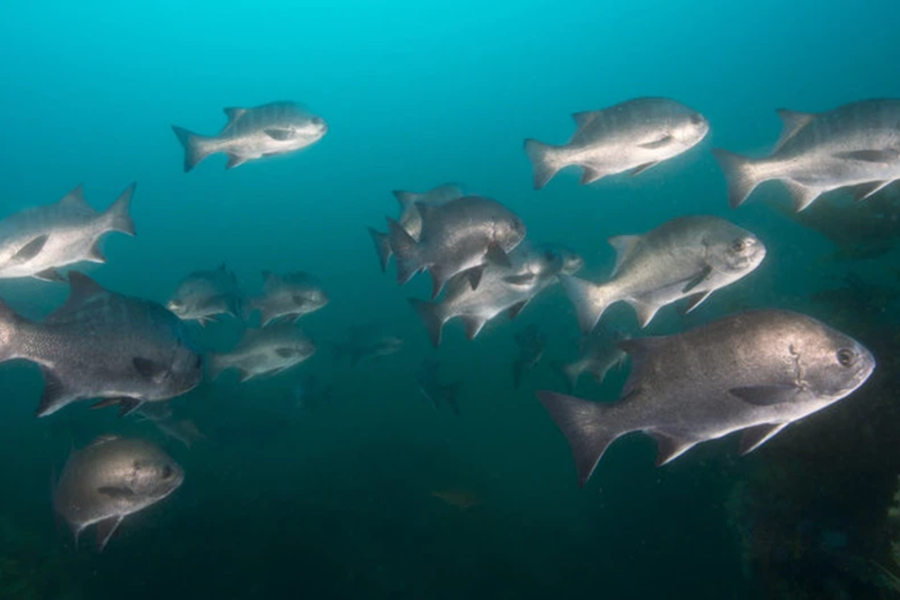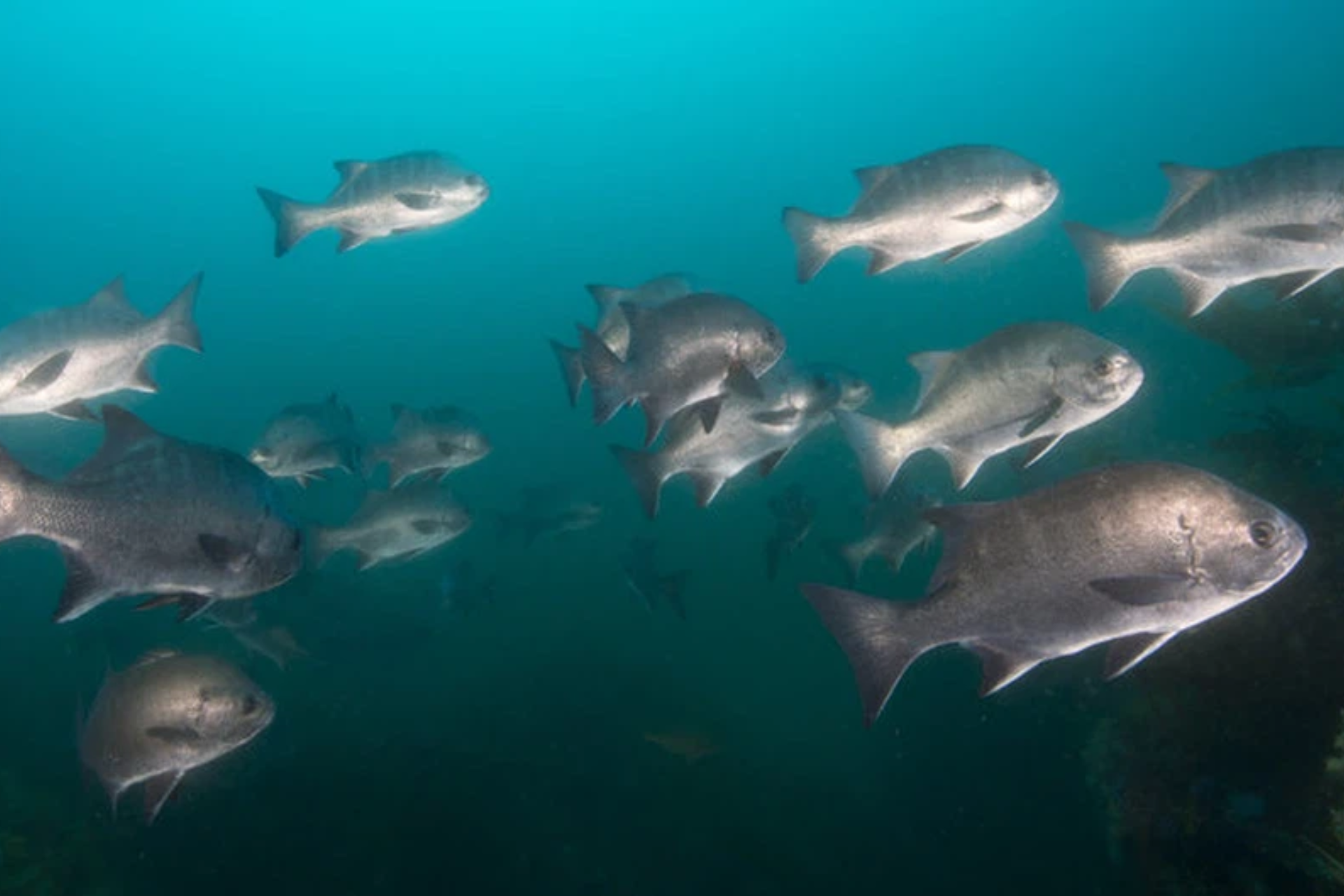
The national fish of South Africa: Do you know what it is?
South Africa’s national fish is not the great white shark or the sardine. Instead, it’s a fish that many of us would fail to recognise – the galjoen. WATCH | Clifton 4th Beach LIVE webcam: Cold, cloudy and deserted Here’s everything you need to know about the galjoen. WHAT IS A GALJOEN? According to the Two Oceans Aquarium in Cape Town, galjoen are a […]

South Africa’s national fish is not the great white shark or the sardine. Instead, it’s a fish that many of us would fail to recognise – the galjoen.
WATCH | Clifton 4th Beach LIVE webcam: Cold, cloudy and deserted
Here’s everything you need to know about the galjoen.
WHAT IS A GALJOEN?
According to the Two Oceans Aquarium in Cape Town, galjoen are a mid-sized fish, with oval-shaped, flattened bodies with symmetrical dorsal and anal fins giving them a distinctive “Snapchat logo” shape, especially when they raise their spines in defence.
Although usually dark, near-black, they are able to change colour which helps them to blend into the rocky coastlines they prefer, but they can change to pale bronze when around the coast.
They are known to grow to about 7kg and over half a metre in length, but this large size is rarely reached due to fishing pressures.
ALSO READ | Airlink to add even more flights to Mozambique
WHY WAS IT CHOSEN AS THE NATIONAL FISH?
The suggestion to make the galjoen the national fish of South Africa was first put forward by Margaret Smith, the wife of legendary South African ichthyologist J.L.B. Smith (the scientist who confirmed the identity of the first-ever present-day coelacanth and father of generational maths guru William Smith).
Margaret Smith wanted to find the marine equivalent of the springbok – a uniquely South African animal that was as iconic as it was special.
Margaret and J.L.B. Smith also noted the galjoen, not just for its uniqueness, but also for its significance to South African history.
The galjoen was much more abundant in the coastal waters of the Cape in the 1600s than today, and its shallow-water habits would have made it one of the first fish to be noticed by European settlers.
FAQ | SARS tax season – What must I do if I agree with my auto-assessment?
